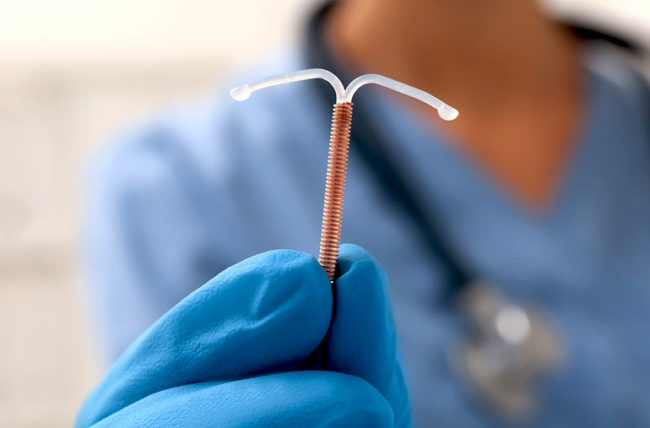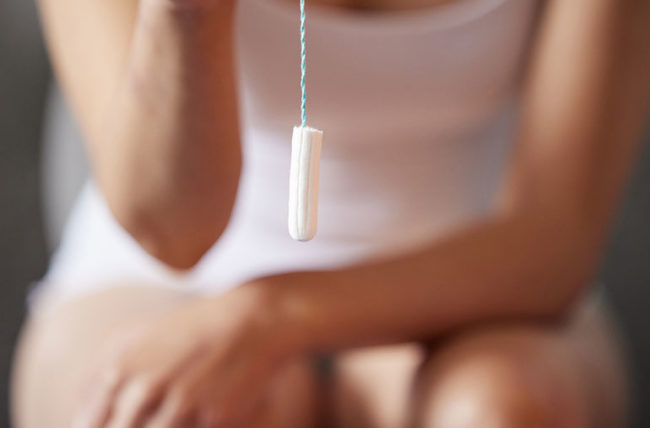You probably already know that there are many options for birth control available.
You can use a variety of devices that are available at the moment, such as diaphragms and condoms . There are also maintenance options such as the pill and injection. You can also choose more permanent options such as laparoscopy, or vasectomy.
There are a number of birth control methods called LARCs, which is short for long-acting reversible contraception. These include Nexplanon (r), a small device implanted into your arm, and intrauterine devices.
Many people are attracted to IUDs because they offer a long-lasting, effective birth control that is reversible.
IUDs come in a variety of options. They release hormones that signal to your body changes that prevent sperm from setting shop or fertilizing an egg.
One IUD in particular, known as ParaGuard(r), is made with copper, instead of hormones. It’s gaining a lot more attention.
Emily Freeman, DO (OB/GYN) discusses the copper IUD with us and why it may be worth considering.
What are copper IUDs?
IUDs have become the most popular reversible birth control in the world, according to the National Center for Health Research. More than 100 millions people are believed to use them as a form of birth control.
IUDs are tiny, T-shaped devices which a doctor inserts into your uterus in order to prevent conception. The hormonal IUD releases a synthetic form of progesterone in order to prevent pregnancy.
Instead of releasing any hormones, a copper IUD is wrapped with a copper-plated wire. Copper triggers an immune reaction in your uterus, causing inflammation that makes it hard for sperms to survive.
Dr. Freeman explains that copper creates an environment toxic to sperm. We call it the ‘foreign-body effect’.
Copper IUD Benefits
IUDs have become popular all over the world as a form of safe and effective birth control.
Dr. Freeman explains that some people prefer the ownership and control of a birth-control pill or a contraception that is changed every month. IUDs can be a good choice for people who do not want to worry about birth control every day.
Dr. Freeman explains the benefits of each.
1. Effective in preventing pregnancy
Dr. Freeman claims that IUDs are effective in more than 99 percent of cases, and the copper IUD is one of the most reliable forms of contraception.
Compare the effectiveness of this method to other birth control methods:
- Depo-Provera(r) shot: 94% effective.
- 90% effective: pills, patches and vaginal ring.
- Condoms: 85% effective.
2. Non-hormonal
Copper IUDs do not release hormones and are therefore a great choice for those with certain health conditions. Those with cancer of the breast may prefer not to use hormonal contraception. Some people prefer a hormonal-free option. They may have tried hormonal birth-control in the past, but experienced unwanted side effects like mood swings or weight gain.
The copper IUD is a long-lasting IUD that requires no maintenance. It also does not contain hormones. This makes it appealing to many people, says Dr. Freeman.
3. Long-lasting
The U.S. The FDA has approved the copper IUD for a 10-year period of use. Dr. Freeman said that research shows it can last longer. Perhaps even up to 12 Years.
Copper IUDs last for several years as well, but not as long as the hormonal IUDs. Some IUDs can be used for three to seven years.
4. Low-maintenance
It’s done. The copper IUD starts working instantly, and you don’t have to do anything else except to visit your doctor when the time comes to remove or replace it.
The IUD is placed in a clinic by a healthcare provider. “It requires no maintenance after that,” says Dr. Freeman. Many people like the idea that they don’t have to remember to take their shot every day, or to take pills daily.
5. Your fertility returns quickly
Dr. Freeman states that if you decide to have a baby, your will return very quickly once your healthcare provider removes the IUD. This is for women and partners with no other medical conditions that would lower their chances to become pregnant.
Dr. Freeman says that depending on your stage of the menstrual cycle you may be able to get pregnant almost immediately after removing an IUD.
6. Use as an emergency contraception
Your healthcare provider can use a copper IUD to prevent conception up to five day after unprotected sexual activity.
Side Effects and Risks
Copper IUDs may not be suitable for all people, just like other birth control methods.
Discomfort during procedure
Inserting and removing IUDs can be painful, even for the copper IUD. After either procedure, you may experience mild bleeding or cramping. The discomfort usually lasts only a short time and can be treated with pain medications available over the counter.
Heavier bleeding
Copper IUDs can cause heavier, longer or painful periods in some women. Hormonal IUDs may have an opposite effect. Some people can skip their periods when using hormonal IUDs.
Rare Complications
Rarely, IUDs may become loose and fall out of the uterus. Very rarely, your uterus can be punctured by an IUD.
Does Not Protect You from STIs
Dr. Freeman reminds us that no IUD, pill, patch or shot will protect you against sexually-transmitted infections. Condoms are the best way to protect yourself from STIs such as HIV/AIDS genital Herpes chlamydia.
What is the best copper IUD for me?
Copper IUDs are safe for almost everyone who has a uterus, from teens to women going through menopause. If you suffer from a copper-allergy or Wilson’s disease, a rare condition where copper accumulates in the body, they should not be used. If you are looking for a long-lasting, non-hormonal contraception option, the copper IUD could be right for you.
Dr. Freeman advises that you should discuss your contraception choices with your doctor. They’ll be in a position to give you advice on what might work best for you. Explain why you are unhappy with your existing method. “They can help you find a different alternative.”






















